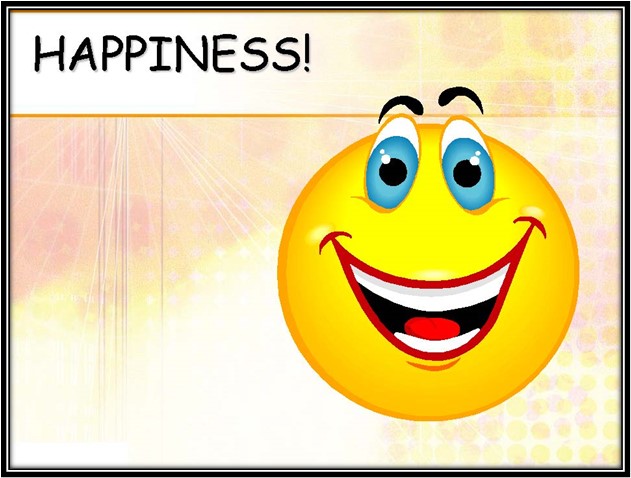How To BE HAPPY! (Part I)
 I just want to be happy.
I just want to be happy.
Haven’t we all heard this? I usually feel a bit powerless to reply. It’s not easy to respond to such an ambition because I want happiness, too. If we tell our friends happiness is fragile or beyond the realm of possibility, then we have to believe that ourselves, which will hinder our own aspirations of happiness. If we tell them, “Here’s how:…” and we’re not happy ourselves, we’re failing. It’s a paradox.
A few mental wanderings: Why is happiness so important to people? Why has happiness become a crucial measure of the value of one’s life? How can I better respond to those who view happiness as their goal or life experience barometer? I don’t have answers (sorry!), but allow me to reflect on this with you. And please note I’m taking on an impossible task: attempting to write with research wonks in mind and communicate with those who aren’t. Bear with me!
First (but not most importantly):
Make More Money
I know everybody says money can’t buy happiness…but it could buy me a boat. ~ Chris Janson
Past research supported the idea that making more than $100,000 (2023 USD) a year didn’t positively impact one’s happiness. Well, guess what? Correcting for research limitations and flaws, some recent research suggests more is better – more income, greater happiness. (You can read the scientific article here, if you are so inclined.) Whew…glad I learned this after I retired! 😉 But remember: happiness measures and experiences are convoluted; you don’t necessarily become happier if you have a bigger pile of money.
Plus, people with less find (or as I like to think, create) reasons to be happy in a life, including this idea:
Give of Yourself (“altruism”)
(Happiness) is not attained through self-gratification but through fidelity to a worthy
purpose. ~ Helen Keller (1880 – 1968)
I often ask (self-described) unhappy people if they are actively serving those in their community who need and request assistance. Why? Because I find most unhappy folks feel isolated, focused on their own lives to the exclusion of others. And, there’s some pretty convincing research as well as life philosophies connecting altruism (giving of oneself) with personal happiness.
Some hold the view people must be emotionally strong and in good circumstances (such as being financially stable, physically safe, and so on) before they can be of help to others, but I am not so sure. Stanley Rachman suggests successful acts of what he calls “required helpfulness” may lead to enduring changes in those offering help. He cites studies from Great Britain II that found many who helped others during World War II bombings experienced fewer trauma-related reactions than expected. Researchers also discovered many people with poor mental health improved during air raid periods when helping others, perhaps due to having a socially necessary job. Just think of the possibilities for those of us who can choose to be helpful! But always keep this in mind: It’s not help if it’s not wanted or helpful. Treat others the way they wish to be treated (the Platinum Rule)! (Here’s a wonderful book by Garret Keizer on helping…worth your time and money.)
And one more for Part I:
Take Yourself Less Seriously
One of the symptoms of an approaching nervous breakdown is the belief that one’s
work is terribly important. ~ Bertrand Russell (1872 – 1970), Conquest of Happiness (1930)
Although new year’s resolutions are fairly common sources of personal failure, a former university colleague told a group I was in she was “not going to make lists of things to do (professionally) every morning and try to accomplish all of them. When it is time for bed each day, I will simply say, ‘That’s enough for today’ and go to sleep.’” I love this attitude. Her past views of happiness may have been closely tied to achievement, but her current stance moved her in a different direction: valuing people, rest, and contentment.
Russell forces me to reflect on what I do, and I see much of what I produce could be done by many, many others. I don’t think this diminishes my importance as a human being or the roles I am in; it simply places more importance on who I am rather than what I accomplish, and this may be part of the “how to.”
All for Part I! Please tell me what you think in the COMMENTS section.
Next Blog: Think “Wellbeing”
